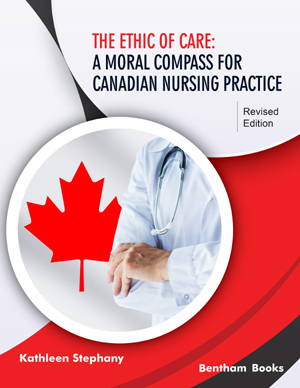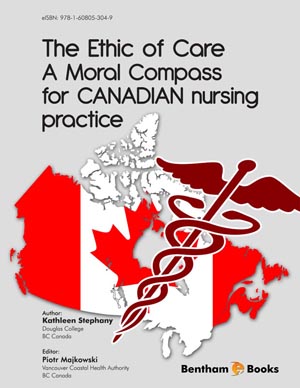Abstract
Chapter Three begins with exploring the role of Canadian law because nurses who have a working knowledge of the Canadian legal system are better equipped to deal with legal issues that may arise during their practice. A brief overview of The Canadian Constitution and The Charter of Rights and Freedoms is also undertaken for similar reasons. Key aspects of the role of the Canadian Nurses Association (CNA) are presented followed by a discussion of the purpose and foundation of the CNA Code of Ethics. A connection is drawn between themes from the CNA Code of Ethics and the ethic of care. Nurses are made aware that the ethical values and responsibilities as laid out in Part I of the CNA Code of Ethics are not discretionary and must be followed by all practicing nurses. Each of the seven CNA Code of Ethics values are then discussed in terms of how they play out in actual practice and narratives are used to emphasize important points. Some topics that directly relate to Part I of the CNA Code of Ethics include: safety and nursing research; what to do if a nurse suspects that a health professional is practicing unsafely or unethically; key elements of informed consent; and the role of the nurse practitioner and registered nurse in medical assistance in dying (MAID). The Chapter ends with a Case in Point where a nurse deliberately covers up a mistake that costs a client their life.
Keywords: Accountability, Common law, Case law, Compassion, Criminal law, Civil law, Conscientious objection, Confidentiality, Distributive justice, Ethics, Ethic of care, Injustice, Justice, Knowledge and care, Law, Medical assistance in dying (MAID), Nursing research, Nursing competence, Precedent, Practice standards, Statutory law, Safety, Safety plan, Self-disclosure, Social justice, Social injustice, The Supreme Court of Canada, The Canadian Constitution, The Charter of Rights and Freedoms, The Canadian Nurses Association (CNA), The CNA Code of Ethics, Values.







